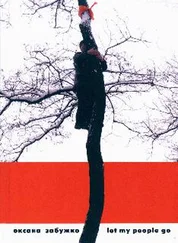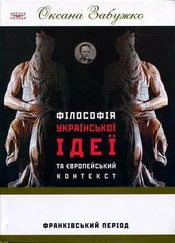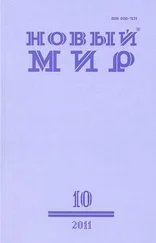Maybe it’s true that slaves should not bear children , she muses, staring dully out the window: yesterday the first snow fell, but now it’s melted, only the windshields of cars parked up and down the street look like wet spots on newborn calves. A man—black skin, bright red jacket, blue baseball cap—bounces down the sidewalk with his hands in his pockets: it must have gotten colder. Because what is slavery, if not infection by fear—she draws toward her an open notebook half-filled with such lukewarm aphorisms that move you about as much as a textbook in formal logic. Slavery is the state of being infected by fear. And fear kills love. And without love—children, poems, paintings—all is pregnant with death. A+, girl! You have completed your research.
Ladies and gentlemen—no, for now it’s just ladies or, more precisely, one lady, Donna from East European Studies, one of the few friends you’ve made during this time, half-Irish, half-Slavic mix, a rather pleasing combination: golden hair, warm hazel eyes, high cheekbones, skin sprinkled with fine freckles like a good sesame seed roll. You can’t smoke in the university cafeteria where you arranged to meet for lunch, and Donna, having finished her cup of the dark brown liquid Americans for some reason insist on calling coffee, stuffs a stick of chewing gum in her mouth: sublimated nicotine. This chewing of the cud comes off as not at all offensive, perhaps because Donna laughs so often and so sincerely, which gives the impression that she keeps tasting something funny. She’s writing a dissertation on gender in postcommunist politics, she is quite honestly interested in knowing why in those politics there aren’t and never have been any women—a question that stumps you every time, no matter how often it’s posed to you by Western intellectuals (hell, how am I supposed to know?). It seems that Donna suspects that this is the root of all our problems: like all feminists, she is convinced that men are “full of shit,” and the minute you let them loose you’ve got wars all over the place, concentration camps, famine, natural disasters, someone starts shutting off the hot water and electricity, then there are budget cuts in the department for the second year in a row and her dissertation defense is postponed yet again. And so Donna takes your story perhaps not so much to heart, as directly into her files. Ladies and gentlemen, let me go on.
“Whaat?!” Donna thrusts herself forward so that her golden curls bounce in the air and settle into the deep cut of her sweater.
“How?!” Donna is outraged. “How could he do that? And how can anybody treat a woman that way?!”
“Oh my!” Donna nods her head sympathetically and with completely uncharacteristic domesticity begins straightening out a nonexistent tablecloth with the palms of both hands: a gesture that indicates complete bewilderment and a loss for appropriate commentary. No, she had problems with her last boyfriend, but nothing like this!…
“Listen,” says Donna as her face clears up with the discovery of a solution: “Looks like this guy is severely sick, don’t you think?”
A short course in psychology, the road to mental health: find the reason and the problem goes away. Why hasn’t anyone thought of doing this with nations: you neatly psychoanalyze a whole national history, and “poof, you’re cured.” Literature as a form of national therapy. Hmm, not a bad idea. Too bad that we happen to have no literature.
“I just don’t understand one thing,” Donna says judgmentally (it’s obvious that a fundamental aspect of her worldview is at stake here). “I don’t understand, why did you put up with it? In bed, I mean? Why didn’t you just say no?”
The conceptual approach: women’s struggle for their rights.
What can I tell you, Donna-dearest. That we were raised by men fucked from all ends every which way? That later we ourselves screwed the same kind of guys, and that in both cases they were doing to us what others, the others, had done to them? And that we accepted them and loved them as they were, because not to accept them was to go over to the others, the other side? And that our only choice, therefore, was and still remains between victim and executioner: between nonexistence and an existence that kills you.
After throwing the vestiges of their lunch into the cafeteria trash bin—plastic trays with paper dishware: cups and plates all in bright spots from different sauces—soy, ketchup, mustard, plum (vermilion, carmine, ochre, umber)—palettes, props from a theatrical performance (act one: an artist’s studio; act two: a room in a student dorm; act three cancelled for technical reasons, tickets not returned and prayers not answered)—they head for the exit. Donna pushes the glass doors, a sudden burst of frosty air joyfully zaps the lungs, cars drive by, young men in jackets sporting emblems of their university walk past laughing, a disturbing electric-blue sky blazes overhead, and on the corner a tall, shaggy, gray-haired Leonardo da Vinci stands wrapped in a blanket, stretching a paper Coca-Cola cup toward them and rattling coins: “Help the homeless, ma’am!”—“I’m homeless myself,” she shakes her head, not at him, out into space.
“But you know,” Donna turns to her suddenly as she pulls on her fine leather driving gloves and happily chews on a new stick of gum, “these East European men of yours may be brutal at times, but at least they’re passionate. While ours…”
…And you’ll be staring out of the airplane window watching the suitcases go up the conveyer belt of the ramp loader and disappear into the bowels of the plane, one after another, and then it will be just empty space floating by, and the man with US Air written on his cap will hop into the blackness of the baggage cart tug, and the bag carts will move out, and while you follow them with your eyes the ramp loader will be taken away and only a gray puddle of melted snow will remain on the cement: “Well, that’s it,” will resound in your head, like a cry in an abandoned church, that’s it—it means they have battened down the hatches, and in a moment you will hear the dry crackle of a microphone, “Ladies and gentlemen,” the flight attendant will purr, and the plane will rumble and shake as the engines warm up, and soon you will be in a different reality, a different life, with the bitterly searing pain of unfulfillment of the life lived thus far (“qu’as tu fait, qu’as tu fait de ta vie?” a faraway voice will ask—ah, let’s drop it, this topic’s as old as life itself: you’re always waiting, dreaming, thrashing about, hoping for something up ahead, and then one day you discover that this indeed was your life)—better for that pain to shut its mouth and not poke its nose out again.
Pass me the microphone and I’ll say, “Ladies and gentlemen, we have created a wonderful world, and please accept, on this occasion, sincere greetings from US Air, and from CNN, and from the CIA, and the Uruguay drug mafia, and the Romanian Securitate, and from the Central Committee of the Communist Party of China, and from the millions of killers in all the prisons of the world as well as the tens of millions still at large, and from the five thousand Sarajevo children born of rape, who will, after all, grow up some day, and—onward and upward, brave new world, and that, actually, is all I wanted to say, thank you for your attention, ladies and gentlemen, have a good flight.”
When I was young, I dreamed of such a death: plane crash over the Atlantic, an aircraft dissolving in the air and the ocean—no grave, no trace. Now I wish with all my heart that the plane land safely: I like to watch the tall, sinewy old man with the hooked nose and deeply furrowed lines running down from his eyes, the way he takes the nylon bag with a tennis racket on its gut and pushes it into the overhead bin; and the Spanish-looking brunette with the unbuttoned leather coat—she’s on board with two children and while she removes the smaller one from her backpack carrier and sets him on the chair, the other one, a girl of about five, narrow tanned face in a baroque frame of promisingly capricious curls, flashes her eyes and her smile up and down the aisle in all directions, glowing with excitement—her first trip!—and her eyes stop on me:
Читать дальше




![Оксана Забужко - Тут могла б бути ваша реклама [збірник]](/books/29264/oksana-zabuzhko-tut-mogla-b-buti-vasha-reklama-zbІr-thumb.webp)

![Оксана Забужко - З мапи книг і людей [Збірка есеїстики]](/books/203319/oksana-zabuzhko-z-mapi-knig-І-lyudej-zbІrka-eseЇsti-thumb.webp)


